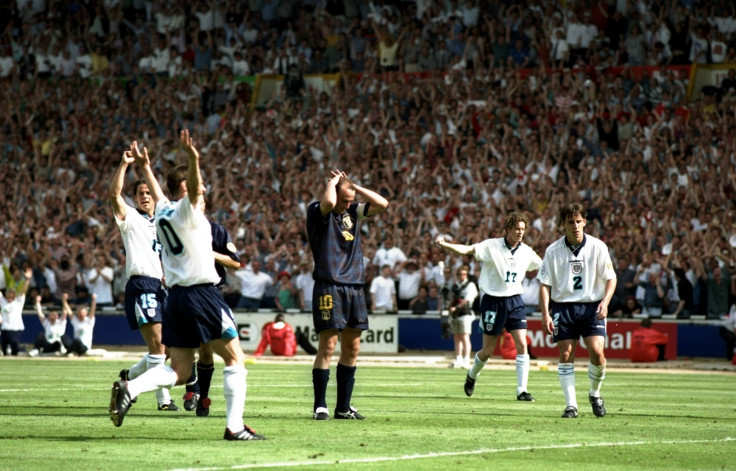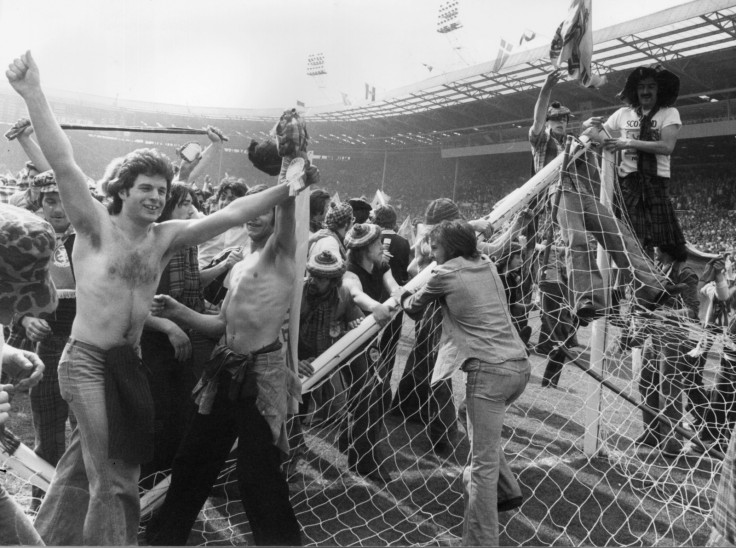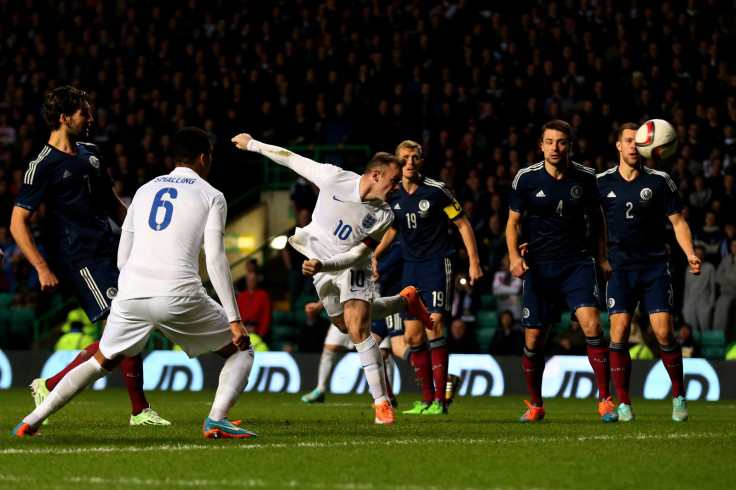England vs Scotland: Why has international football lost its appeal?
The Battle of Britain used to be the biggest game on the calendar, now it's little more than an afterthought.

What happened to the time when playing for your country was the pinnacle of a footballer's ambitions? And beloved of the fans as the highest form of the game? These days international weeks feel as if tumbleweed is blowing through them.
England play Scotland on Friday (11 November), a match-up that used to stir the loins and raise the pulses, as a celtic horde of kilt-and-wig-wearing fans prepared to descend upon Wembley. Now it is just yet another stepping stone in a never-ending cycle of big tournament qualification. The only real interest seems to revolve around whether Gareth Southgate or Gordon Strachan will still be managing their respective teams by the next round of games.
Before the globe became a village, international games had rarity value: the national teams didn't play often, and opportunities to see the very best from far off lands play were few and far between. Pele was a genius, but one who was only really seen every four years, and up close even more rarely.
The national team was the pinnacle of performance: the best players collected together to give their all for Queen and Country. Outside of the World Cup (and in later years the European Championship) the biggest games on these islands were the Home Nations Championships , the annual opportunity for Scotland, Wales and Northern Ireland to take the English down a peg or two.
England vs Scotland really mattered in 1967 when the Scots declared themselves World Champions on the back of beating the World Cup winners. It mattered a decade later when the Scottish fans invaded the pitch in preparation for their trip to the '78 World Cup, a tournament which the auld enemy notably failed to reach. Now England play Scotland for a place at the 2018 World Cup and the buzz is inaudible.
That it's being played on a Friday night doesn't help. The sprawl that now sees international fixtures played every day for a week means there is always football on but this inversely affects the thrill of the event. The uncommon has become common in the search for total domination of the airwaves.

Even more than the sprawl of international football is the prominence of the world's biggest leagues and their TV footprint. Lionel Messi is as omnipresent as Pele was rare. We can watch Messi weave his magic on multiple nights every week, in La Liga and the Champions League, and we can't help but notice that the diminutive star seems much happier when playing for Barcelona than he does for his national team. With Barcelona Messi wins tournaments, and yet with Argentina he always comes up short.
The ever-expanding nature of major tournaments mean that the larger nations fear failure to qualify less than ever before. As poor as England's major tournament performances have been for the past couple of decades, they have (nearly) always been there. The biggest and most anticipated England international outside of the major tournaments this millennium was the one which saw them fail to reach Euro 2008 under the auspices of The Wally with the Brolly, because it was a game that mattered.
That the modern English player looks ill at ease in their national uniform doesn't help matters. The Wayne Rooney that plays for Manchester United is (or was) manifestly a better player than the other Wayne Rooney, the one that played for England. Whether it's true or not, fans believe that players prefer playing for their club than their country. Perhaps this is projection, as the modern supporter seems to value club over country too.
But, aside from the gut feelings and doubts, perhaps the truth is much simpler: international football is no longer the best football that can be viewed.

Premier League football is of a higher class than most international football. The Premiership features the best and brightest from around the globe and the England players who appear are rarely the stars of their teams. When those English players become a collective they are exposed without the bought-in talent that surrounds them at club level.
Those overseas Premier League stars help drive the league's marketability around the globe, but the international fans who follow every nuance of their favourite club team have no interest in the England side that features only English players.
And perhaps here is the rub: the lack of interest in international football is more pronounced in England than it is elsewhere. England's 50 years without success plays a part. But more importantly the England team only really interests English fans. But the English are a minority of the English Premier League's fan club. Come international week the Belgians who love Eden Hazard at Chelsea or the Senegalese who follow Sadio Mané at Liverpool, will instead be watching their own nation in its journey to whichever tournament is next on the list.
Every weekend the world tunes in for the English Premier League but come international week it's only the English who watch England.
© Copyright IBTimes 2025. All rights reserved.






















